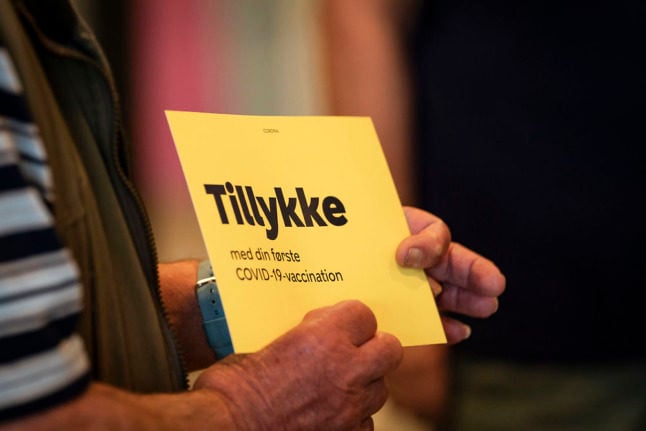The exact figure of 4,018,508 Denmark residents who have received at least the first dose of a vaccine against the coronavirus was released by the Ministry of Health on Thursday.
That corresponds to 68.67 percent of the country’s population, according to the ministry.
Denmark’s national vaccination programme uses only the Pfizer and Moderna vaccines, both of which require two doses. The Johnson & Johnson vaccines, for which a single dose is required, and the two-dose AstraZeneca vaccine are available via an opt-in scheme.
READ ALSO: Explained: How does Denmark’s voluntary system work for AstraZeneca and Johnson & Johnson vaccines?
Almost 2.8 million people in Denmark are fully vaccinated against the coronavirus, according to the latest data from the national infectious disease agency State Serum Institute. That corresponds to just over 47 percent of the population.
An expert in Denmark estimated that at least 86 percent of the population must be vaccinated in order to achieve community (herd) immunity to Covid-19.
The figure is higher than earlier estimates in part because of the emergence of the more infectious Delta variant.
READ ALSO: Coronavirus: Nine out of ten new Danish infections caused by Delta variant
That would require almost all adults and children over twelve years to be vaccinated, given that 13 percent of the population is younger than this.
“In Denmark the case is that school children won’t be vaccinated before the autumn, but a large proportion of adults will be. So we won’t achieve actual herd immunity to start with,” said Viggo Andreasen, professor in mathematical epidemiology at Roskilde University.
“But that doesn’t mean we can’t benefit hugely from the vaccinations. So the closer we get to that 86 percent, the better,” Andreasen added.



 Please whitelist us to continue reading.
Please whitelist us to continue reading.
Member comments